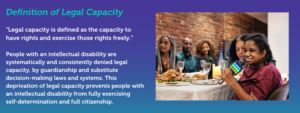
![]()
Rights to equality, self-determination, and full citizenship are legally recognized and assured for all people with an intellectual disability.
![]()
Every person has the right to make and guide decisions about their life. However, people with an intellectual disability are often denied this right because their ability to decide is not accepted or recognized.
We want to see a Canada where people with an intellectual disability are legally recognized as full and equal citizens. This includes making decisions about their own lives and having those decisions recognized and respected.
The power to make decisions about your life is called legal capacity. Canadian guardianship laws take away a person’s legal capacity and give this power to a substitute decision-maker. We are working to change these laws, but it’s a long and complex process.
In the meantime, we along with our colleagues at the Institute for Research and Development on Inclusion and Society (IRIS) have started working with local communities to show how they can support people with an intellectual disability to make decisions about their own lives. Together we’ve created tools to help communities get organized, provide practical support, and give people with an intellectual disability real choice, power, and control over their lives. This page contains links to the tools as well as a brief description.
![]()
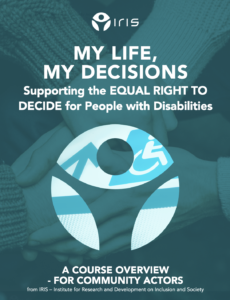
Learn what it means to make personal decisions, exercise the right to decide, and support people with disabilities to do so. My Life, My Decisions, will equip you with community-level strategies to support people with disabilities to have power, choice, and control in their lives. This 6-hour facilitated course can be divided into three online or in-person sessions. The course takes you on a learning journey exploring:
Learn more about the course or organize a course in your community.
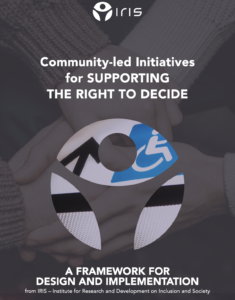
In our experience, communities that successfully support the decision making of people with disabilities have eight best practices in common. Learn about these eight ‘core functions,’ and the steps you can take to implement them in your own community using the Framework for Design and Implementation – Community-led initiatives for Supporting the Right to Decide.
The core functions presented in this document provide a helpful framework to start the discussion in your community. The first step is to bring together community organizations and advocates who want to launch a local initiative for the right to decide.
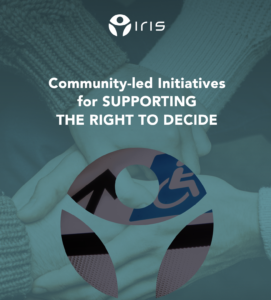
Community organizations play an important role in supporting people with disabilities to make decisions. Once you’ve brought the community together, you can use another resource – Community-led Initiatives for Supporting the Right to Decide – A Readiness Assessment Tool. The Readiness Assessment Tool complements the Framework.
We created this tool to help community organizations reflect on their strengths and identify areas where they need to build capacity. Using the eight core functions described above, the tool offers a starting point for community action. It assists community agencies and organizations to identify their ‘readiness’ to lead in implementing these core functions. By assessing this capacity, and identifying barriers, the assessment tool helps communities develop strategies to overcome these barriers.
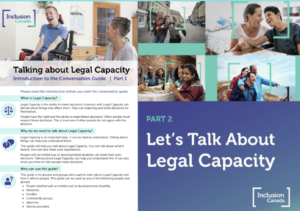
Legal Capacity is an important idea but it can be hard to understand. We worked with People First of Canada to create a plain language tool that aims to bring together people with disabilities, families, community organizations, and other allies to get the conversation started.
Part 1 of the tool is aimed to help set the stage for planning the discussion and how to have a discussion using the guide to facilitate. Talking about Legal Capacity: Introduction to the Conversation Guide (Part I)
Part 2 of the tool is the actual Conversation Guide “Let’s Talk about Legal Capacity,” which is designed to help build shared understanding of legal capacity and the right to make decisions, hear lived experiences, and learn how to support decisions and the decision making process. The conversation guide will help you have a discussion about legal capacity. The guide is built in five parts and includes discussion questions to help you (or someone else) lead a conversation about legal capacity. The guide can be used online or in-person. The conversation can happen at home, at an online or in-person meeting, or even in a coffee shop!
![]()
If you would you like to learn more about these tools and how to use them, we along with our colleagues at IRIS would be happy to talk with you. Please contact us at inform@inclusioncanada.ca.